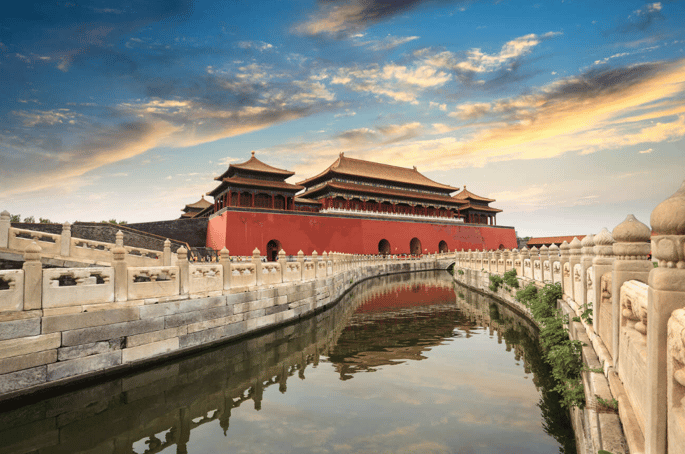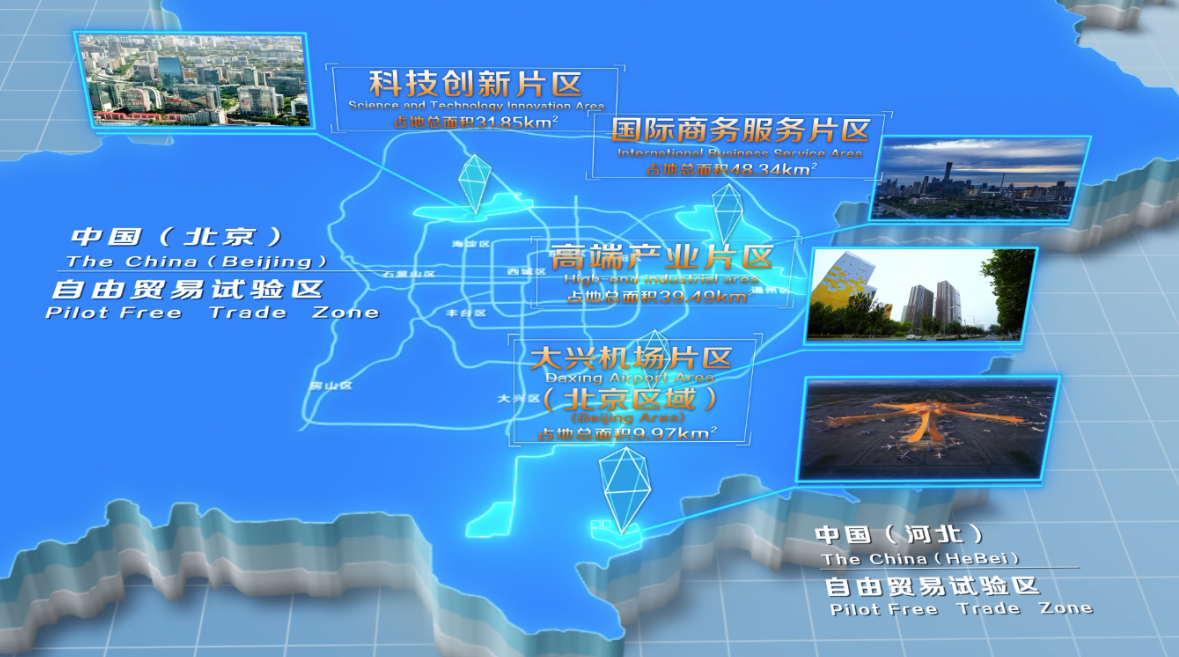When considering doing business in China, the first question that always comes to your mind is: in which city should I start my business? Choosing the right city to pursue your success in China is not a simple question. There are numerous factors to consider. The business attractiveness landscape is the comprehensive result of the business resource aggregation, urban hubness, resident activity, and future plasticity and development potential.
Business Attractiveness and Eco-system in China – Chinese Cities Series!
To help you choose your ideal location to start your business, Hongda has planned a series of blogs on the business attractiveness and eco-system in major cities and regions across China, including Beijing, Shanghai, Guangzhou, Shenzhen, Hainan, and Hong Kong S.A.R.!
Still not sure how to choose the optimal destination for your investment? Simply book a free meeting with Hongda’s consultation and we will discuss your business plan and advise you on the most suitable city for you to run your company. If you want to know the investment landscape of any other cities in China, you are also welcome to contact us and let us know your requirements!
Related blogs on China city series:
Beijing – The Capital of China
Beijing, the capital of the People’s Republic of China, with its 22 million residents, is now the world’s most populous capital city, and the second largest city after Shanghai. Beijing is both an international city and one of the oldest cities globally with a colorful history of over 3 millennia. Locating in the north of China, Beijing’s 16 districts cover an area of 16410.5 square kilometers in total.
As one of the most famous culture centers in the world, Beijing is home to 7 UNESCO World Heritage Sites, making it the most tourist destination. Apart from its rich history, it is also the nation’s and the world’s leading hub for diplomacy, finance, business and economics, education, research, and science and technology. Most of China’s state-owned companies are headquartered in Beijing, who are also chosen by a great number of Fortune Global 500 enterprises to settle in China. Beijing CBD contributes to the economic growth of this city, while the Zhongguancun area serves as the leading center of scientific and technological innovation.
The solid education background in Beijing provides the investors with a huge talent pool from some of the world's leading universities. In addition, the Chinses Academy of Sciences and the Chinese Academy of Engineering, and the Chinese Academy of Social Science makes Beijing the highland for scientific innovation and this city the largest research output by the Nature Index since 2016.
Want to expand your business in China while experiencing the traditions and modernity? Read this blog to see how Beijing can accelerate your success with the support of incentive policies and other benefits!

Beijing’s Industrial Advantages
1. Digital Economy:
Digital economy has become an important growing factor of Beijing, increasing from 872 billion RMB in 2015 to 1.7 thousand billion RMB in 2022, which took up about 42% of Beijing’s GDP. In the first quarter of 2023, the added value of digital economy reached 426.5 billion. To further promote digital economy in this region, the Beijing government has released a series of action plans to stimulate the vitality of the industry.
With the focus on the breakthroughs in core technologies in high-end chips, artificial intelligence, key software, blockchain, privacy computing, operating systems for urban spaces, and other fields, foreign open-source projects and investors are welcome to set up their business in Beijing.
2. High-tech Industry:
Supported by an outstanding higher education background and research credentials, Beijing has rapidly developed into a technology-oriented science hub and is now leading the innovation in the artificial intelligence field. Being the home to 102 unicorn enterprises, Beijing was frequently ranked the top tier for innovation ecosystems, showing great potential for economic growth in the following decades.
The ambition of ‘Made in China 2025’ strategy presented the overall target for the science innovation. The thousands of science innovation firms in Beijing have accelerated the technological innovation activities, especially in Zhongguancun Science Park of the Haidian District.
3. Cultural Industry:
As the ancient capital of five dynasties, culture, sports, and entertainment have always acted as the driver of economic growth of Beijing. With the help of digital platforms, Beijing has created a new development framework by promoting digital culture experience and online entertainment. In 2021, the ‘above designated size’ companies contributed 1756.3 billion RMB to the region’s GDP.
The ‘Two-Zone’ Construction in Beijing

The “two zones” are the National Comprehensive Demonstration Zone for Expanding the Opening-up of the Service Industry (hereinafter referred to as the ‘Comprehensive Demonstration Zone’) and the China (Beijing) Pilot Free Trade Zone (hereinafter referred to as the ‘Beijing FTZ’). The construction of the "two zones" is a major policy of the central government to support Beijing's opening up and development, and a major opportunity given to Beijing in building a new development pattern.
The comprehensive planning of the ‘Two-Zone’ construction implements a ‘17+9+4’ framework:
- 17 areas and districts: the construction covers all 16 administrative districts and Beijing Economic-Technological Development Area;
- 9 key disciplines: including: culture and tourism, science and technology, digital economy, finance, education, healthcare, aviation services, business services, and specified services;
- 4 key elements: regarding finance and taxation, talent, intellectual property, and convenient customs clearance;
1. The China (Beijing) Pilot Free Trade Zone
In August 2020, the State Council approved the establishment of the China (Beijing) Pilot Free Trade Zone (or the Beijing FTZ). The implementation scope of the Beijing Pilot Free Trade Zone is 119.68 square kilometers, covering three areas: the Science and Technology Innovation Area, the International Business Services Area, and the High-end Industrial Area.
- The Science and Technology Innovation Area: this area includes the Zhongguancun Science City and some usable industrial spaces around Beijing Life Science Park. Focusing on the development of next-generation information technology, biology and health, scientific and technological services, and other industries, this Area is expected to form a highland of the scientific research and innovation.
- The International Business Services Area: covering industrial spaces around Beijing Capital International Airport, Beijing CBD, Jinzhan International Cooperation Service Zone, as well as the city’s sub-center Canal Business District and Zhangjiawan Design Town, this area focuses on the development of digital trade, cultural trade, business exhibitions, medical health, international delivery logistics, cross-border finance and other industries.
- The High-end Industrial Area: this region’s key aim is to drive the growth of business services, international finance, cultural creativity, biotechnology, and general health within the Beijing Daxing International Airport and the Economic and Technological Development Zone.
2. the National Comprehensive Demonstration Zone for Expanding the Opening-up of the Service Industry
The Comprehensive Demonstration Zone can date back to 2015 when the State of Council agreed to launch a three-year comprehensive pilot program to expand the opening up of the service industry in Beijing. In 2020, the Zone was upgraded from ‘pilot area’ to ‘comprehensive demonstration zone’, marking China’s establishment of first demonstration zone service industry in Beijing. The general goal of the Comprehensive Demonstration Zone is to achieve free and convenient trade, investment, cross-border flow of capital, talent requirement, transportation, and flow of data.
Beijing-Tianjin-Hebei Integrated Development Plan
While Beijing is widely known for its economic importance and central role, Tianjin and Hebei, however, are always hidden and ignored in the shadow of Beijing’s outstanding performance. This situation started to change when the Beijing-Tianjin-Hebei Integrated Development Plan, or the Jing-Jin-Ji Integrated Development Plan, was launched with the aim to build a world-class city cluster around Beijing. Nowadays, the Beijing-Tianjin-Hebei cluster accounts for 10% of the national GDP, contributed by the 100 million people, which is about 8% of China’s overall population. The Beijing-Tianjin-Hebei Integrated Development Plan was first proposed in the 12th Five-Year Plan (2011-2015). It looks for different areas in the region to focus on various comparative advantages to maximized synergies and avoid duplication.
In 2019, the China (Hebei) Pilot Free Trade Zone, or Hebei FTZ, was established in Xiong’an New Area. Hebei FTZ covers an area of 119.97 square kilometers, which can be divided into 4 sub-areas: Xiong’an Area, Zhengding Area and Shijiazhuang Comprehensive Bonded Zone, Caofeidian Area, and Beijing Daxing International Airport Area. The "Special Management Measures for Foreign Investment Access in Pilot Free Trade Zones (Negative List)" was formulated by the National Development and Reform Commission, which uniformly lists special management measures for foreign investment. You can check the list and see whether your business is accepted in this area!
Conclusion
Compared to other popular investment destinations such as Shanghai and Shenzhen, although doing business in Beijing can be less flexible due to Beijing’s political importance, it is still a great choice for investors who set long-term goals in the northern China. Beijing can act as an outstanding terminal for any surrounding provinces such as Hebei, Tianjin, and especially the Northeast Area of China. Since the Beijing-Tianjin-Hebei Integrated Development Plan was put into effect, Beijing has become the top choice for global investors to establish their overseas headquarters or offices.
Comprehensively and systematically understand the opportunities and advantages of investing in Beijing, and better formulate investment and development strategies in Beijing. The policies in Beijing are as beneficial as they are in the Greater Bay Area and in Shanghai. Please feel free to book a free consultation with Hongda’s team to discuss your plan and see what we can help you to start your business in Beijing!





